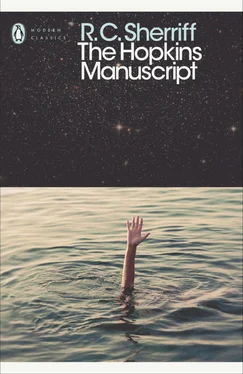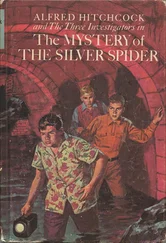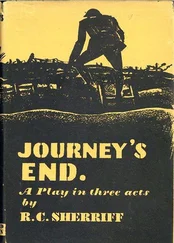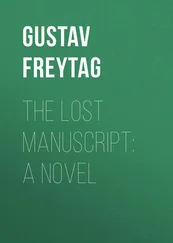Роберт Шеррифф - The Hopkins Manuscript
Здесь есть возможность читать онлайн «Роберт Шеррифф - The Hopkins Manuscript» весь текст электронной книги совершенно бесплатно (целиком полную версию без сокращений). В некоторых случаях можно слушать аудио, скачать через торрент в формате fb2 и присутствует краткое содержание. Год выпуска: 2018, ISBN: 2018, Издательство: Penguin Books, Жанр: sf_postapocalyptic, humor_satire, на английском языке. Описание произведения, (предисловие) а так же отзывы посетителей доступны на портале библиотеки ЛибКат.
- Название:The Hopkins Manuscript
- Автор:
- Издательство:Penguin Books
- Жанр:
- Год:2018
- ISBN:978-0-241-34908-3
- Рейтинг книги:4 / 5. Голосов: 1
-
Избранное:Добавить в избранное
- Отзывы:
-
Ваша оценка:
- 80
- 1
- 2
- 3
- 4
- 5
The Hopkins Manuscript: краткое содержание, описание и аннотация
Предлагаем к чтению аннотацию, описание, краткое содержание или предисловие (зависит от того, что написал сам автор книги «The Hopkins Manuscript»). Если вы не нашли необходимую информацию о книге — напишите в комментариях, мы постараемся отыскать её.
The Hopkins Manuscript — читать онлайн бесплатно полную книгу (весь текст) целиком
Ниже представлен текст книги, разбитый по страницам. Система сохранения места последней прочитанной страницы, позволяет с удобством читать онлайн бесплатно книгу «The Hopkins Manuscript», без необходимости каждый раз заново искать на чём Вы остановились. Поставьте закладку, и сможете в любой момент перейти на страницу, на которой закончили чтение.
Интервал:
Закладка:
And never shall I forget my reply. ‘I will!’ I shouted, crashing my clenched fist into the palm of my hand. ‘I am not afraid to face the consequences of enterprise and courage!’
I was too angry to realise what I was saying, and in the next moment could have bitten my tongue off for its rashness.
There was a moment of silence and then a burst of vigorous, sincere applause from the members present. Before I realised what was happening Dr Willoughby, an old and highly respected member of the Committee, was standing up, addressing the meeting.
It was an inspiring moment, he said, when a wealthy member of a society came forward as sponsor and guarantor in the noble cause of science. Personally he considered the scheme a risky one for a small society, although he applauded its courage. Now that those risks had been so generously covered by Mr Edgar Hopkins he looked forward with a restful mind to the completion of the scheme.
I had come out in a cold, clammy sweat, but what could I possibly do? Around me sat the men who had tried to kill the scheme – who were angry with me for saving it. If I were to stand up again and say that I did not mean what I had said, what would be the reply of the men whom I had accused of cowardice? I should be discredited and laughed out of the Society.
I am prepared to admit that it was my inexperience in public speaking that had led me into this rash outburst. Had I been a rich man with money to spare the position would have been different. But I was not a rich man. After purchasing my house and poultry farm I had £9,000 of invested capital that produced an income of £400 a year. It was just sufficient to meet my modest expenses but gave me not a penny to spare.
What might be the consequences of this reckless outburst of mine? The failure of this observatory scheme might throw the Society into debt to the tune of £2,000! The loss of so much of my money would mean the end of my present home – the end of my cherished poultry farm. It was more than I could bring myself to think of. I sat in my chair, the hero of the evening, but limp, bewildered and helpless, applause ringing in my ears. I could not draw back now if I were to retain a vestige of pride and respect amongst these men around me.
I heard, as through a disordered dream, the voice of our President, thanking me for my generous guarantee: I heard him put the scheme before the meeting and I saw a sea of hands lifted in favour of it. The scheme was carried by forty-seven votes to nine.
How I summoned the strength to walk to the ante-room I do not know. I vaguely remember someone handing me a cup of coffee and biting a sandwich which seemed like dry cotton wool in my mouth when I tried to swallow it. I remember my hand being shaken – I remember smiling faces and words of praise.
And as I went out into the night to catch my train, my teeth were chattering in impotent misery.
The scheme was put in hand without delay, and it was as if an evil spirit had cursed its progress.
Everything seemed to go wrong. It was not until the Committee had purchased a seven-year lease that the borough architect inspected the premises and pronounced the roof unsafe in its present condition for an observatory.
The Committee was ordered to strengthen the roof at the additional cost of £217. Hardly had the shock of this blow abated before the telescope makers announced an increase of 10% upon the telescope and instruments owing to the rise in the cost of materials.
I was not upon the Committee at this time, although I was assured that my generosity would gain me a seat at the next election. I therefore only heard what was happening through my old friend Dr Perceval.
My enemies – the opponents of the telescope – naturally heard of these troubles and did not conceal their malicious pleasure at our monthly meetings, but one evening Dr Perceval told me in confidence that the Committee was struggling bravely against its difficulties and was doing its utmost to achieve success without calling upon my financial support. He told me that if the scheme failed a General Meeting would be called and that I could consider no news as good news.
How I prayed that the scheme would overcome all troubles and succeed! Not only for the sake of my own fortune and my own future, but for the sake of the triumph over my enemies!
How I would smile upon those fools at the brilliant opening ceremony! How I would chuckle as the British Lunar Society went from strength to strength as a result of its splendid observatory – the result of my courage and the generosity that despite my opponents had not been called upon!
Every day that passed meant greater assurance that the scheme was succeeding, and during that summer I achieved a serenity of spirit and happiness that I had never known before. I felt the joy of a gambler whose gamble had succeeded – the joy of being a man of courage – the satisfaction of feeling that my friends believed me to be a very wealthy man…
And now, like a bolt from the blue twilit sky of that autumn evening, had come this fateful letter.
‘We shall call a General Meeting if the scheme fails.’ Dr Perceval’s words beat upon my ears like totem drums as I sat in the arbour upon the hillside of my garden.
What else could the letter mean? Private – Confidential – Matters of the highest importance.
For the last time I seemed to see my beloved poultry farm as my own: that deep green meadow and those olive, aged yews. I could scarcely look at my home as I walked up the hillside with a heart of lead. That little house, no longer mine, was so beautiful, so infinitely friendly in the twilight that a glance at it would have been insufferable.
I had no appetite for the excellent sole and cheese soufflé prepared for me by Mrs Buller, my housekeeper. After toying with the food I went into my library and mechanically picked up a new book that I had so eagerly received that morning – The Craters of the Moon by Professor Herman Parker of Harvard. I opened it, then flung it aside with repulsion. I strode to the window and wrenched the curtains together to conceal the thin, silver crescent that was rising placidly and smugly above the meadows. I loathed the moon: it was the cause of my ruin. I hated the moon and everything to do with it.
I heard the gloating laughter of my enemies: I heard the tap of the auctioneer’s hammer – knocking down my poultry at pitiful prices. For a moment I thought of running away – absenting myself from the hateful meeting on the 8th October, but even as the thought came I knew that it was unworthy of me. I determined to attend and face the consequences. Better to be a pauper and keep my honour than live with my money in shame.
I went to bed, and saw the dawn come without closing my eyes.
CHAPTER TWO
The reader can well conceive the misery I suffered during those weeks of suspense before the fateful Meeting.
One morning, no longer able to bear the cruel uncertainty, I telephoned to Humphrey Tugwall, the Secretary of the Society, and asked him to tell me in the strictest confidence the nature of the meeting.
Tugwall replied curtly that the matter could not be discussed and cut me off with an abruptness that told its own story.
For the next ten days I was drenched in a gloom that nothing could dissipate. On the 7th October, my hen Broodie won the Egg-Laying Contest for two-year-olds at Little Bramble Poultry Fair, but the triumph was a hollow mockery. I received the diploma from the Hon Mrs McNaughton and accepted the Challenge Egg Cup with a smile that needed all my courage to produce. I expect those country bumpkins in the audience attributed my pale face and haggard eyes to the drawn-out anxiety inevitable to a poultry owner during an egg-laying contest. How little they suspected the truth! – How little they knew that upon the morrow, in the great City of London, I was to face a hundred men of science and receive my dreadful sentence – to be stripped of my small fortune as a disgraced officer is stripped of his sword.
Читать дальшеИнтервал:
Закладка:
Похожие книги на «The Hopkins Manuscript»
Представляем Вашему вниманию похожие книги на «The Hopkins Manuscript» списком для выбора. Мы отобрали схожую по названию и смыслу литературу в надежде предоставить читателям больше вариантов отыскать новые, интересные, ещё непрочитанные произведения.
Обсуждение, отзывы о книге «The Hopkins Manuscript» и просто собственные мнения читателей. Оставьте ваши комментарии, напишите, что Вы думаете о произведении, его смысле или главных героях. Укажите что конкретно понравилось, а что нет, и почему Вы так считаете.












